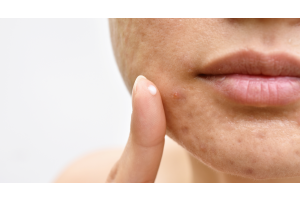Local Storage seems to be disabled in your browser.
For the best experience on our site, be sure to turn on Local Storage in your browser.
How to Determine My Skin Type?

A healthy, radiant complexion is the result of proper and personalized care. But did you know that not all skins are the same? Understanding your skin type is the first step in establishing an effective facial care routine. In this article, we`ll explore the different skin types and provide useful tips for their care.
1. Normal Skin
Normal skin is balanced, smooth, and without obvious imperfections. It has a uniform texture and small pores. People with normal skin typically experience fewer skin problems, but they still require basic care to maintain their health and radiance. A gentle cleansing routine and regular moisturizing are all that this skin type needs.
2. Oily Skin
Oily skin tends to be shiny and prone to acne breakouts. This is due to an overproduction of sebum, which can clog pores and cause the appearance of pimples and blackheads. To care for oily skin, it`s important to use products designed to control excess oil and keep pores clean. Gentle cleansers and oil-free products are ideal for this skin type.
3. Dry Skin
Dry skin is characterized by a lack of moisture and a rough or flaky texture. It can feel tight and sensitive, especially after cleansing. To combat dryness, it`s crucial to use moisturizing and nourishing products that help restore the skin`s moisture balance. Natural oils, such as argan oil or almond oil, are excellent for providing additional hydration to dry skin.
4. Combination Skin
Combination skin exhibits characteristics of normal, oily, and dry skin in different areas of the face. For example, the T-zone (forehead, nose, and chin) tends to be oilier, while the cheeks may be dry or normal. Caring for combination skin requires a combination of products designed to address the specific needs of each area. For example, you can use a gentle cleanser on the entire face and a lighter treatment on the T-zone to control excess oil.
5. Sensitive Skin
Sensitive skin is prone to redness, irritation, and allergic reactions. It can be triggered by factors such as weather, harsh chemicals, or stress. To care for sensitive skin, it`s important to choose gentle, fragrance-free products that won`t irritate or sensitize the skin. Additionally, it`s advisable to perform patch tests before using new products to ensure they don`t cause any adverse reactions.
Each skin type has its own characteristics and specific needs. By identifying your skin type and adapting your facial care routine accordingly, you can help maintain healthy, balanced, and radiant skin. Remember, consistency is key when it comes to skincare, so be sure to follow your daily routine for the best results.



